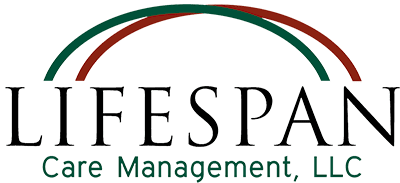What are Accountable Care Organizations?
In the ever-evolving landscape of healthcare, Accountable Care Organizations (ACOs) have emerged as a promising model aimed at improving patient outcomes and reducing costs. Central to the success of an ACO is the role of case managers, who play a vital part in coordinating care and supporting patients throughout their healthcare journey.
However, despite the noble intentions behind their work, many patients find themselves struggling within the ACO system. In this article, we will explore some of the reasons why patients are facing difficulties and identify potential solutions.
One of the primary challenges patients encounter within the ACO framework is the lack of personalized attention from case managers. ACOs typically serve a large population, and case managers often find themselves overwhelmed with caseloads, making it challenging to provide individualized care. As a result, patients may feel like they are just another name on a long list, rather than receiving the focused support they require. With LifeSpan CM, patients get the attention they deserve by case managers who really care about their well-being.
Delays in Elderly Care Management Impact on Patient Health
For Elderly Care Management, the limited availability of case managers can lead to delays in communication and decision-making, exacerbating patients’ struggles. Timely access to care is crucial, particularly for those with chronic conditions or complex medical needs. Delays in receiving the necessary attention and guidance can hinder patients’ ability to manage their health effectively and may result in unnecessary hospitalizations or emergency room visits.
Communication with Health Providers in Poor
Another key issue that patients face is the fragmented nature of care within the ACO system. While case managers are responsible for coordinating care across various providers and specialties, the lack of seamless integration often leads to gaps in communication and coordination. Patients are left to navigate the complex healthcare system on their own, seeking referrals, scheduling appointments, and managing conflicting treatment plans.
Moreover, the limited interoperability of electronic health records (EHRs) poses a significant barrier to effective care coordination within ACOs. When case managers and providers are unable to access comprehensive patient information, it becomes challenging to make informed decisions and provide holistic care. Patients may find themselves repeating their medical history or undergoing unnecessary tests, resulting in frustration and reduced confidence in the system.
How to Make ACO Case Managers Better?
To address these challenges, several strategies can be implemented to enhance the patient experience within ACOs. First and foremost, ACOs should prioritize improving the patient-to-case manager ratio. By reducing caseloads, case managers can allocate more time and attention to each patient, fostering a sense of trust and personalized care. This may involve hiring additional case managers or exploring the integration of technology-based solutions, such as virtual case management platforms, to augment the capacity of existing staff.
Why Hire a Private Case Manager?
Hiring a private case manager for elderly care can offer numerous benefits and greatly improve the overall well-being and quality of life for aging adults.
LifeSpan Care Management is a private company offering care management, case management, and plan of care. Our personalized care provide one-on-one attention and tailored care plans that address the specific needs of each elderly individual. We take the time to understand the unique circumstances, preferences, and medical conditions of the person they are caring for, ensuring that the care provided is individualized and comprehensive.
As a private case managers, we act as a support system and advocates for our elderly clients, ensuring their rights and wishes are respected in all aspects of their care. We are knowledgeable about available resources, services, and entitlements, and can guide families through the complex healthcare and long-term care systems. Case managers provide emotional support to both the elderly individual and their family, offering reassurance and guidance during challenging times. Get a plan of care assessment for your aging family member.

